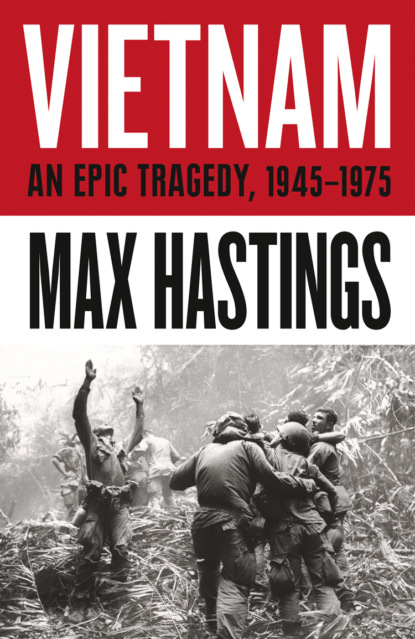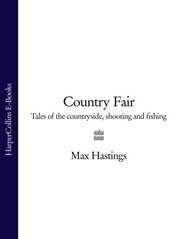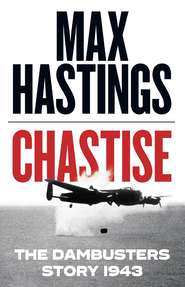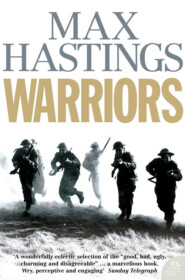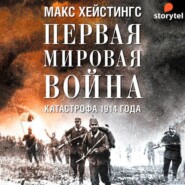По всем вопросам обращайтесь на: info@litportal.ru
(©) 2003-2024.
✖
Vietnam: An Epic History of a Divisive War 1945-1975
Настройки чтения
Размер шрифта
Высота строк
Поля
On paper, the battle need not have been the decisive event of the war, because the French still possessed powerful forces. Giap’s army had exhausted itself, and was incapable of translating this local triumph into a successful general offensive. Yet France’s government and people could stand no more. Pierre Rocolle has written: ‘Dienbienphu became an imperious invitation to stop the shooting, because the will to pursue the struggle no longer existed.’ France’s American quartermasters had the worst of all worlds: they had provided sufficient military aid to fight a war, yet not enough to win it.
It is usually mistaken to assume that the outcome of any historical drama was pre-ordained, but there is an absolute lack of suspense about a narrative of France’s Indochina experience between 1945 and 1954: colonial rule there became unsustainable amid the strength of nationalist resistance together with the weakness of non-communist political elements – the mythical ‘Third Force’ which many Americans yearned to identify. Doug Ramsey, a US foreign service officer who would become a significant figure in Vietnam a decade later, said: ‘I wonder that we could have taken ourselves in, that many years in a row. It went back to Roosevelt making accommodations with the colonial powers. Think of the inanities of John Foster Dulles.’
There has been speculation about how much Giap’s success owed to his Chinese advisers. Mao’s men obviously provided technical instruction. For the most part, however, subsequent history shows that the North Vietnamese – as we might now begin to describe them, though many communist leaders came from the south and centre of the country – needed and accepted remarkably little guidance from others. A decade’s experience of war had made Giap and his comrades proficient, even inspired soldiers, fortified by the indifference to casualties common to all communist armies: foreign admirers later dubbed the North Vietnamese ‘Prussians of the Orient’. Hanoi’s histories pay effusive tribute to the personal role of Ho Chi Minh. Such claims are rooted in the demands of an authoritarian state’s official legend. Yet thus far, at least, they must be valid: Giap could not have accomplished what he did, nor survived so many bloody setbacks as commander-in-chief, without the support of Ho in good times and bad. The general himself was hugely respected, but his egotism made him little loved. In his subsequent writings about the battle, and indeed Vietnam’s wars, he tells a story of Giap, Giap, Giap, with scarcely a nod to the contributions of his subordinates. Nonetheless his victory at Dienbienphu stands as one of the military epics of the twentieth century.
3 GENEVA
News of the capitulation was broadcast in Paris at 4.45 p.m. on 7 May, and acknowledged in Geneva somewhat later, just hours before the assembled foreign ministers began to debate the political future of Vietnam. Georges Bidault, making the announcement, paid implausible tribute to France’s ‘civilising’ role in Vietnam, speaking of ‘this conflict that was forced upon us’. What was extraordinary about subsequent events at the conference tables – Dulles refused to sit at a common board with the Chinese – was that French humiliation yielded no triumph for the Vietminh. After expending torrents of blood to strengthen their negotiating position, they were eventually obliged to go home with half a loaf. How so?
The Geneva story began with the arrival of the first delegations, on 24 April 1954. Representatives of the world’s media thronged around the two-hundred-strong Chinese group, led by the urbane, handsome, supremely sophisticated Zhou Enlai, fifty-six-year-old scion of a scholarly family. Zhou bore to his grave the respect of the international community, despite serving as Mao Zedong’s instrument through decades of mass murder. The Russians arrived bearing a large consignment of caviar with which to enrich their hospitality at the multilateral feasts they intended to hold, though none eventually took place. John Foster Dulles sustained his usual standard of diplomatic courtesy, turning his back on Zhou when the Chinese extended a hand. The British were far more nervous of the US secretary of state than of the communists: they feared that Dulles’ rancour might provoke him to sabotage the proceedings. The obvious dominance of China and Russia reinforced the American conviction that Ho Chi Minh was their pawn: at Geneva the delegations of Zhou and Molotov were seen everywhere, that of the Vietminh only in conference sessions.
As the disparate national groups dispersed to their various hotels and mansions, Dulles led the only party stubbornly anxious to sustain the Indochina war. He expressed disgust that he had been invited to attend a diplomatic sell-out to the communists, comparable with that at Yalta in 1945. The veteran liberal columnist Walter Lippmann observed: ‘The American position at Geneva is an impossible one, so long as the leading Republican senators have no terms of peace except unconditional surrender of the enemy and no terms for entering the war except as a collective action in which nobody is now willing to engage.’
Yet the obduracy of the US secretary of state played a critical role in producing a settlement far less favourable to the communists than their victory at Dienbienphu made likely. In 1972, President Richard Nixon would fail in an attempt to convince the North Vietnamese that he was reckless enough to commit any military excess – the ‘Madman Theory’. Yet in 1954, common to all the communist delegations at Geneva was morbid dread of an American troop commitment in Asia. The Chinese and Russians had enjoyed the Korean war even less than did the Western Powers. They read newspapers, and were acutely conscious of the conservative forces in play within the US. They knew that the Eisenhower administration needed scant further provocation to commit American firepower – just conceivably, nuclear weapons. Moreover, though the Vietminh were often hailed as possessing an infinite capacity for sacrifice, by May 1954 the leadership knew that its followers were weary. Vietnam’s ‘liberated zones’ groaned under the stresses of fighting a war while simultaneously implementing a social revolution.
The word ‘partition’ seems to have crossed Russian lips before anyone else’s. The Vietminh dominated the north, while remaining weak in the south. Korea’s division at the 38th Parallel, insouciantly mandated by Dean Rusk in 1945, set a precedent. On 3 May, before the formal Vietnam sessions opened in Geneva, Bao Dai’s pantomime government threatened to boycott the conference without a French guarantee that partition was not on the agenda. That same day, Dulles returned to Washington to sulk, leaving deputy secretary Walter Bedell Smith, Eisenhower’s wartime chief of staff, to lead the American team. Everybody heaved a sigh of relief, because ‘Beadle’ was rational, as Dulles was not. A flurry of private bilateral conversations followed, involving all the delegations, before formal proceedings began on 8 May, beneath the shadow of Dienbienphu’s fall.
For the first week, the Chinese remained almost mute: the only two foreign ministers who displayed impatience were Eden and Molotov. On 10 May Pham Van Dong made an opening statement, proclaiming the Vietminh’s commitment to full independence for all three states of Indochina. He promised that those Vietnamese who had fought against Ho Chi Minh would be ‘free from repression’. Then, to the amazement of the Westerners, he expressed willingness to consider partition. It seems almost certain that the Vietminh had been heavily pressured by the Chinese and Russians to initiate such a proposal.
Once the communist camp had tabled it, this outcome became overwhelmingly likely, though much horse-trading was bound to follow about where a line should be drawn between a new North and South Vietnam. The French initially favoured a ‘leopard-skin’ distribution of territory, identifying regions that should be conceded to the communists, with the special objective of excluding Hanoi and Haiphong. On 12 May, Bao Dai’s delegation reasserted its rejection of any divide. Yet bilateral staff conversations about ways and means began between French and Vietminh representatives, encouraged by the British.
In the US Dulles made plain his own alienation, and conservative media whipped up a frenzy. Time said that Britain’s leaders ‘look alarmingly like appeasers’. Bedell Smith told a press conference that partition was unacceptable, and in private became increasingly irked by Eden’s apparent eagerness to indulge communist aspirations. In secret bilateral talks, Washington sought to stiffen Paris’s resistance, but the French responded that only immediate US military action could dissuade them from cutting a deal. Once again, Eisenhower and Dulles explored the possibilities of forging a coalition for military action even without the British. However, Australia and New Zealand declined to participate, which snuffed out that final flurry of American enthusiasm for belligerence. The Spectator described the early talks at Geneva as ‘an appalling mess’, and none of the participants disagreed.
To comprehend the events of the next few weeks, it should be recognised that capitulation at Dienbienphu did not check the fighting and dying elsewhere across Vietnam: the French continued to suffer punishment, even as the flow of desertions from their locally-recruited forces became a flood. On 4 June Navarre was relieved of command, making way for Paul Ely to become proconsul. Two new military disasters took place. In the first, Groupe Mobile 100, while conducting a withdrawal from An Khe in the Central Highlands, fell victim to a devastating succession of ambushes commencing on 24 June. About half GM100’s personnel were killed and four-fifths of its vehicles destroyed; one of France’s finest regiments, 1st ‘Korea’, was wiped out. On 12 July Groupe Mobile 42 suffered a similar fate. Meanwhile Giap was known to be preparing a big new offensive in the Red River delta: a Chinese rail link to the northern border of the ‘liberated zone’ was now delivering to the Vietminh four thousand tons of munitions and equipment a month.
Protraction of the Great Power negotiations, even as the killing went on, attracted the dismay and impatience of a global audience. At London’s Café de Paris, Noël Coward introduced Marlene Dietrich by declaiming a superbly witty verse in praise of female allure through the ages. Laughter reached its climax in response to his lines about Cleopatra: ‘The Serpent of Nile/could achieve with a smile/far quicker results than Geneva.’ Yet suddenly, there was hope: in the midst of France’s continuing battlefield reverses, in Washington awareness dawned that there could be worse outcomes than partition. Absent US intervention, all Vietnam might be overrun by the communists. Bedell Smith accepted the need to take a deal. Meanwhile in Geneva, on 15 June the communist camp held a secret strategy session: Zhou pressed the Vietminh to become more realistic, notably by abandoning their big lie that they had no forces in Laos and Cambodia. Molotov seconded his Chinese counterpart.
Three days later there was another dramatic development: Joseph Laniel quit as France’s leader, to be replaced by Pierre Mendès-France. The new prime minister immediately announced that he too would resign unless he could achieve an Indochina ceasefire within thirty days. He thus imposed a deadline on the Geneva talks, and Zhou told Eden and others that he was keen to see this met. On 23 June in Bern he held private talks with Mendès-France, at which the two men got on well. Zhou made no bones about his prime objective: to keep US forces out of Indochina. To achieve this, they agreed that there must be a partition.
The anti-communist Vietnamese representatives, led by their own new prime minister Ngo Dinh Diem, whimsically chosen by Bao Dai, remained implacably hostile. Yet only one dissenter mattered: would Washington impose a veto? Churchill wrote to Eisenhower: ‘I think Mendès-France has made up his mind to clear out on the best terms available. If that is so, I think he is right.’ On 24 June, Dulles told congressional leaders that the US would adopt a new policy: to defend southern Vietnam, Laos and Cambodia from communist takeovers – ‘Hold this area and fight subversion with all the strength we have.’ His statement implicitly acknowledged loss of the north.
Meanwhile, Chinese and Vietminh leaders reviewed their position, in advance of the crucial next round in Geneva. At a 3–5 July meeting in the southern Chinese city of Liuzhou, premier Zhou Enlai recalled the reversal of the communist invasion of South Korea in the summer of 1950. Zhou told Ho Chi Minh and his delegation: ‘The key to the Korea issue lay in US intervention … It was completely beyond our expectation that [MacArthur’s] reinforcements would arrive so quickly … If there had not been US intervention, the Korean People’s Army would have been able to drive Syngman Rhee’s [forces] into the ocean.’ Here was an expression of fears that mirrored those of the Americans: the Chinese were apprehensive that if the Vietminh overplayed their hand, as had North Korea’s Kim Il-sung, a geostrategic disaster could unfold.
In 1954 Mao Zedong’s civil war triumph, together with the perceived humiliation of the US and its Nationalist clients, were only five years in the past. Some American conservatives still cherished hopes, however fanciful, of reversing the ‘loss of China’. Four years earlier, the Chinese had entered the Korean war because they felt unable to tolerate MacArthur’s victorious army on their Yalu River border. At the time of Geneva, Mao felt far less secure than his regime’s subsequent longevity might suggest. Zhou Enlai’s priority was Chinese security. This seemed best advanced by appeasing American sensitivities: he could live with a non-communist South Vietnam, if this would calm Dulles and Eisenhower.
Thus the Liuzhou conference took its course. If the Indochina war continued inconclusively – as well it might, with the French still deploying some 470,000 troops against 310,000 Vietminh – and wider East–West tensions worsened, Washington might yet lash out. Everything gained in a decade of struggle might be forfeit. Giap acknowledged that, without a political settlement, it could take two to five years to achieve absolute military victory, a view shared by his Chinese advisers. The French were then proposing a far northern partition at the 18th Parallel, just south of Vinh. The initial Vietminh offer was for a boundary at the 13th Parallel, in the midst of the Central Highlands of Annam. The Chinese suggested a compromise at the 16th, from which Ho Chi Minh appears not to have demurred. When Zhou reported to Mao on 7 July, the chairman accepted the need for concessions and a swift settlement. The Russians agreed, for similar geopolitical reasons.
Dulles petulantly declined to attend the first meetings of the final session of the Geneva conference on 10 July. He regarded the deal under discussion as representing a surrender comparably odious and craven to that of the 1930s to the fascists: it would likely prove a mere way-station towards a communist takeover of all Vietnam. This, after the US had expended $2.5 billion on funding the anti-communist war effort, more than France itself had received in economic aid since 1945. Meanwhile Mendès-France had not troubled to inform Bao Dai about the progress of negotiations. In Saigon the newly-installed prime minister, Ngo Dinh Diem, still resisted partition, even when the US ambassador urged him to accept that half a country was preferable to none. Diem instructed his foreign minister in Geneva to pursue the fantasy of keeping Hanoi and Haiphong under Saigon’s rule – here was a foretaste of his later rejections of unwelcome realities. He insisted upon placing on record his government’s view, that partition ignored ‘the unanimous desire of the Vietnamese people for national unity’.
(#u009794c4-434c-5956-8a65-22037eb804f5)
On 16 July deputy secretary of state Bedell Smith arrived in Geneva to lend a reluctant American presence. Under instructions, however, he took no part in the horse-trading now conducted through a tense round of bilateral and ad-hoc meetings. Two days later the foreign ministers agreed that the proposed ceasefire would be supervised by an international control commission composed of Indians, Canadians and Poles. On 20 July a partition was agreed between the French and the Vietminh close to the 17th Parallel, which gave the new South Vietnam a short, defensible border with the North. This partition ‘would be provisional and should not in any way be interpreted as constituting a political or territorial boundary’. All Vietnamese were granted a three-hundred-day grace period in which to decide under which regime they would henceforth live, with a guaranteed freedom of movement northward or southward. General elections would be held within two years. Both Vietnams would join Laos and Cambodia as avowed neutral states. The French would go home.
There were two main documents constituting the Geneva Accords. The Agreement on the Cessation of Hostilities was signed on 21 July 1954 by the French and the North Vietnamese. The Final Declaration of the Geneva Conference was verbally endorsed by the French, the British, the Chinese and the Russians. Dulles issued a statement emphasising his nation’s special interest in the fate of the newborn twins: he warned that any violation of the deal’s terms would be ‘a matter of grave concern and seriously threaten international peace and security’. Everyone involved save the Americans gave credit to Anthony Eden for his performance as co-chairman, through many weeks when the talks seemed doomed to fail. An eyewitness wrote of his ‘almost inhuman good humour and patience’: this was the finest hour of the career as a statesman of the brilliant, unstable, absurdly handsome British foreign secretary.
The Geneva Accords, as they became known, merely settled terms of truce between the departing French colonialists and the communists who were to assume governance of the North. Therein lay the basis for the later insistence of both Washington and Saigon that refusal to conduct national elections within the specified two-year time frame was no breach of anything to which either had consented. Many people around the world quickly understood that though the outcome of Geneva was distasteful, nothing more palatable was on offer. The Spectator editorialised on 23 July: ‘This is a bad peace. It is almost certainly the best peace that could, in the circumstances, be obtained.’ The magazine went on to speculate that the communist bloc had curbed its demands because of fears roused by Washington’s sabre-rattling. ‘It would seem to follow that the United States, with its wild, ugly and undisciplined grimaces, has nevertheless indirectly contributed to the conclusion of peace.’
Eisenhower and Dulles thereafter invested the new semi-nation with a legitimacy and importance rooted in the need to calm their Republican constituency at home, and to restore the administration’s self-esteem after failing to save the North. South Vietnam, said the secretary of state, might yet prosper ‘free of the taint of French colonialism’, through the instrumentality of Ngo Dinh Diem, a figure whom Washington embraced with an enthusiasm that was somewhat startling, given that the Americans knew little of him. The British saw matters differently: they had consistently refused to associate themselves with engagement in Indochina, because they saw no vital interest at stake there. They believed the West had its hands full confronting the Soviets in Europe. Meanwhile the Russians and Chinese were reflexively willing to provide some assistance to North Vietnam, now a fellow-socialist state. They would be gratified if the Americans failed in an attempt to make South Vietnam a capitalist showcase, but had no appetite for making Indochina the scene of a high noon between East and West.
The Vietminh went home from Geneva convinced that Zhou Enlai had double-crossed them, yet Ho Chi Minh accepted that hegemony over all Vietnam must be deferred for a season. When North–South elections took place, he could be confident that unification would follow. For the present, he and his comrades addressed themselves with ruthless single-mindedness to building the socialist state of which they had dreamed for so long, into which the South would soon be subsumed. Although the Vietminh had displayed a tenacious appetite for armed struggle, by 1954 its leaders must have been grateful at last to sleep on beds under roofs with their families; to eat half-decent food; to live and work without fear of interruption by bombs or shells.
No Westerner regarded Geneva as a success story, instead it was seen merely as an exercise in damage limitation, as is most Big Power diplomacy: its achievement was to extricate an exhausted colonial power from an unwinnable war. Yet what was extraordinary about the Accords was that the new Saigon government got so much, the triumphant Vietminh so little. This was because the Russians and Chinese were far less interested in the fate of Indochina, and explicitly of Vietnam, than Washington’s Cold Warriors supposed. Mao Zedong had no wish to see an over-mighty communist Vietnam on his doorstep, and appears to have been anxious to draw Laos and Cambodia into his own sphere of influence, rather than that of Ho Chi Minh.
A general ceasefire took effect on 27 July, pending the temporary partition of Vietnam. After years living at COSVN’s secret headquarters in the Mekong delta, COSVN secretary Le Duan emerged to start his travels across the South on a hand-pumped railway trolley. In the North the communists assumed control. On 9 October the French Army left Hanoi, marking the occasion with a series of defiant, vainglorious military ceremonies which caused an American spectator to think of Don Quixote. Amid a roll of drums, boomph of brass and clash of cymbals, Gen. René Cogny, ringmaster for Dienbienphu, saluted the flags of regiments that had fought – paras, Legionnaires, Marines, Senegalese, North African, together with armoured columns that chewed the soft tarmac of Hanoi’s streets. France’s departure was characterised not by nobility and generosity, but instead by a spiteful scorched-earth policy: the colonials removed or destroyed everything that might be of value to the victors.
Ten-year-old Doan Phuong Hai thought the trumpets of the French quitting Hanoi ‘so sad that they seemed to be sobbing’. Their flag was lowered for the last time over the citadel on a cold, blustery, wet afternoon. Two NCOs folded the sodden tricolor, then presented it to the presiding general, who in turn passed it to the garrison commander. Rain masked the tears of many officers and men as the band played the Marseillaise. Then the garrison boarded its trucks and drove away towards the coast. It was just seventy-five years since the colonial power had assumed governance of the city.
The departing French were first replaced by representatives of the International Control Commission, ‘Indian Army officers with swagger sticks and bristling Guards mustaches, pale-faced Poles in their odd triangular caps, and beer-drinking Canadians speaking their own puzzling brand of French’. They in turn were followed by the victors, the first elements of Giap’s army. In Howard Simpson’s words: ‘They came forward in two files, one on each side of the street, small men in drab uniforms wearing leaf-woven, cloth-covered helmets fitted with camouflage nets. Loaded down with weapons and equipment, the Bo Doi of the 308th Division were entering an environment totally unfamiliar. Their approach was heralded by the soft shuffle of hundreds of feet in cheap tennis shoes: the Vietminh entry into Hanoi thus proved one of the most silent victory marches in the history of the world.’ Peasant soldiers gawked in wonder at the grand buildings and broad avenues, booty of their struggle. They were watched by crowds who displayed an enthusiasm that was not entirely spontaneous: cadres had for days toured the city, persuading its hesitant citizens that it would be in their interests to cheer the victors.
Among the handful of Americans present was big, clunky Major Lucien Conein – ‘Black Luigi’, ‘Lou-Lou’ or ‘Three-Finger Lou’ – an American born in France who had returned to his birthplace in 1939 to share the French defeat, then served with the OSS in Europe and southern China. As leader of Col. Edward Lansdale’s US military advisory group in North Vietnam, he was now charged with organising stay-behind teams. Conein was a caricature of a semi-secret warrior – hard-drinking, tough, outspoken, often outrageous: he once expressed his exasperation with a stalled automobile engine by emptying a .45 pistol into it. Now, in the midst of the throng of Vietminh shuffling by, he suddenly punched the air and shouted in Vietnamese, ‘Long live Ho Chi Minh!’ This won him a cheer from surrounding communists, who failed to perceive that he was mocking them – as he would continue to do through the years that followed.
Before the end came for the French, Norman Lewis mused uncertainly about ‘whether it had all been worth it – the brief shotgun marriage with the West, now to be so relentlessly broken off. Had there been, after all, some mysterious historical necessity for all the bloodshed, the years of scorn, the servitude, the contempt? Would the free Nations of Indo-China, in their coming renascence, have gained in the long run from the enforced rupture with the old, unchanging way of life, now to be replaced, one presumed, by a materialist philosophy and the all-eclipsing ideal of the raised standard of living?’
An elderly peasant who lived beside Route 1 said: ‘The happiest day in my whole life was when I saw two truckloads of French soldiers leaving Hue for the last time. They drove by my house, and looked so sad.’ France left behind the graves of ninety-three thousand of its soldiers, who had died since 1945 in the futile struggle to cling to Indochina. Those men had no Kipling to weave for them shrouds of romance. A decade later in Saigon, however, a legend was spun that the fallen of Groupe Mobile 100 had been buried beside Route 19 in the Central Highlands where they perished, standing upright in the stiffness of death, facing towards France.
5
The Twin Tyrannies (#ulink_9ab0f532-27b1-578e-9c8d-db6bb22dba8f)
1 ‘A REGIME OF TERROR’
Northern and southern Vietnam have always been as different as are their regional counterparts in Britain, the US, Italy and many other nations, even employing slightly different obscenities: the common expletive ‘fuck mother’ translates as du me in Saigon, dit me in Hanoi. In the years that followed the Geneva Accords, both fell into the hands of oppressive authoritarian regimes. That of Ho Chi Minh, however, profited from some notable political advantages. While the North was devastated by the war, subjected to a destitution rapidly worsened by communist economic policies, it became far more efficiently disciplined. Ho had spent less of his own life in Vietnam than had Ngo Dinh Diem. As victor in the independence struggle, however, he commanded immense prestige, and deployed his charisma and charm to formidable effect on the international stage. Moreover, by exercising iron control over information and access, North Vietnam veiled from foreign eyes its uprisings, purges and killings. In the South, by contrast, the follies and cruelties of the Diem regime took place in plain view: many peasants found Vietnamese landlordism no more acceptable than the French variety, and learned nothing of the worse plight of their Northern brethren. Only much later would Southerners come to look back on ‘the six years’ – the period between 1954 and 1960 – as a lost idyll, because relatively few of their countrymen killed each other.
Following the 25 July 1954 ceasefire, a vast exodus from the North took place, as a million people who feared the new rulers – businessmen, servants of the French, landlords, anti-communists and above all Catholics – fled the country by land, sea and air. It was a time of turmoil, sunderings, fears and farewells. Vietminh cadres stopped buses carrying fugitives to the port of Haiphong down Route 1, urging and sometimes compelling passengers to remain. Nguyen Duong’s modestly prosperous family, small businesspeople, suffered a disaster: in the throng at an airfield outside Hanoi, his mother briefly set down the bag containing all their portable wealth in jewellery and gold. Within seconds it vanished, never to be seen again: they started a new life in Saigon almost penniless.
Even as the Northern government-in-waiting issued a Dienbienphu commemoration mug, pathetic scenes took place in Hanoi as its more prosperous citizens stacked possessions in the streets outside their homes, for disposal at firesale prices. Some families split. Nguyen Thi Chinh’s father Cuu, head of a once-rich landlord family, told the sixteen-year-old girl and her nineteen-year-old brother Lan that they would go south – one daughter had already left, after marrying a French doctor. The night before they flew, he gave each teenager a belt containing a little money, some food and essentials. Very early next morning, however, Chinh was shaken awake by Lan, who whispered to her, ‘Come outside.’ On the road they found a friend of her brother’s holding two bicycles. Her brother said, ‘We’re going to join the revolution. Father would understand, but he wouldn’t give permission.’ Chinh was appalled. She pleaded, begged, screamed, dragged at the bikes’ handlebars, all in vain. Lan and his friend pedalled away.
Distraught, she wakened her father. He decided that she must leave as planned, while he stayed behind to search for Lan. A few hours later she found herself among a pushing, shouting, desperate mob at the airport, boarding a cargo plane. Her father at their parting gave her a gold bracelet. On arrival in Saigon she was consigned to a refugee camp, where through the weeks that followed she sobbed relentlessly. At last she encountered a kindly family friend who said, ‘Come and stay with us’; two years later she married his son. She would hear no more of her brother for almost forty years.
Tran Hoi, serving as an apprentice with the French Air Force, had no hesitation about moving to Saigon with his squadron. His mother, however, determined that she must stay behind to sell their house and the family bus company. Hoi flew south aboard a C-47: ‘I cried all the way – Vietnamese never abandon their relations.’ He would have sobbed louder had he known that he would have no further contact with his kin until 1998. He embarked on a life in the South that was always tinged with sorrow, because on holidays and feast days he could never again make the pilgrimage to a family home.
By bus, train, car and on foot, families trekked to Haiphong to board ships, mostly provided by the Americans. It was later claimed that US agents staged a propaganda campaign to frighten Northerners into flight. That there was propaganda is beyond dispute, including atrocity stories fabricated by the American conservative ‘hero’ Dr Tom Dooley, author of a mendacious best-selling memoir Deliver Us From Evil. Equally well-attested, however, are the tragedies that befell many of those who remained, accepting the false assurances of Ho Chi Minh that they had nothing to fear.
(#u009794c4-434c-5956-8a65-22037eb804f5)
Landlord’s son Nguyen Hai Dinh was eighteen when his only sister joined the flight southward. He himself remained. ‘Why? Because I was very stupid … We had thought the French were colonial oppressors until the communists took over, then we started to think of the French as our friends.’ All those possessed of property or education became marked for exclusion, even death, under the new order. Dinh found that his class background made him ineligible to attend university, or to occupy any responsible job. His new ideology teacher said: ‘In the past this country was feudal: now it belongs to the peasants and workers. You have no country.’ His father was stripped of citizenship rights for five years as an ‘anti-social element’, and obliged to scratch a living as a cook for Party cadres. Dinh came to hate everything about his own society, above all the impossibility of saying what he thought. He dated a student named Phuong, but through the five years of their dalliance he never dared to discuss any political subject: ‘Everybody was watching everybody else. Anyone could be an informer.’ He was deemed eligible only for manual labour.
In some tribal areas armed resistance persisted, using weapons provided by France’s special forces before the ceasefire. Bernard Fall claimed that several French officers serving with the tribes could not be retrieved from remote districts, and were abandoned until they were progressively rounded up or killed. He describes a Frenchman radioing desperately as late as the summer of 1956: ‘You sons-of-bitches, help us! Help us! Parachute us at least some ammunition so that we can die fighting instead of being slaughtered like animals.’ Fall asserts that nothing was done: ‘There was no “U-2” affair, no fuss: France did not claim the men, and the communists were content to settle the matters by themselves.’ The Hanoi weekly People’s Army reported in September 1957 that in the two years following the ceasefire, their forces in the mountains east of the Red River had killed 183 and captured three hundred ‘enemy soldiers’, while forcing the surrender of 4,336 tribesmen. Probably not more than a handful of these were Frenchmen, but the report confirms the persistence of resistance.
Meanwhile the new government set about implementing land reform. The Party daily Nhan Dan called on cadres to ‘banish selfish and pacifist doctrine’ and ‘resolutely lead the peasantry to crush the whole landlord class’. The Indian representative on the ICC reported that those who supposed the regime mere nationalists and socialists were naïve. Hanoi’s leadership, he said, bore an ‘indisputably communist character’. Northern media poured forth strident anti-American propaganda. Pierre Asselin, noting that all totalitarian governments require enemies, has written: ‘demonization of the United States … created a “useful adversary” that facilitated gaining and maintaining public support … for advancing the Vietnamese revolution’.
The draconian land-reform programme introduced between 1954 and 1956 pleased some peasants, who saw their old landlords dispossessed, but imposed so many hardships that despite the benefits generated by the cessation of armed strife, many Vietnamese found themselves continuing to face chronic hunger, and later near-starvation. Duong Van Mai, daughter of a former colonial official, observed: ‘The state had removed an incentive for hard work by paying peasants according to their labour’. When collectivisation was later superimposed, ‘shortages became a way of life.’
Adults were accorded rations of twenty-eight pounds of rice a month, ten ounces of meat and the same weight of sugar, and a pint of fish sauce. They received four yards of cloth a year, and two sets of underwear. Yet even in the darkest days, Party leaders and their families fared much better. The Northern elite enjoyed nothing like the riches that soon accrued to their Southern counterparts, but they never went hungry. In 1955, only deliveries of Burmese rice averted a famine as grave as that of a decade earlier. Hanoi’s principal sources of cash were $US200 million provided by China, and another $100 million from Russia. These sums were not gifts, however, but mere payments for commodities shipped abroad, desperately missed at home.
Credible statistics have never been published about the cruelties and executions perpetrated by North Vietnam’s rulers in the early years of revolution. Significant admissions were made in a 29 October 1956 speech by Giap, by then deputy prime minister: ‘We indiscriminately viewed all landowners as enemies, which led us to think there were enemies everywhere … In suppressing enemies we adopted strong measures … and used unauthorized methods [a communist euphemism for torture] to force confessions … The outcome was that many innocent people were denounced as reactionaries, arrested, punished, imprisoned.’ Estimates of executions range up to fifteen thousand. While Ho Chi Minh is alleged to have wrung his hands about the excesses, he never deployed his huge prestige to prevent them.
Not only were large portions of landlords’ holdings confiscated, but in many cases the new regime demanded that they should repay to their tenants money collected over years in ‘excessive’ rents. Assets and draught animals were seized at will, so that Duong Van Mai’s elderly uncle found himself attempting to till his residual patch of paddy with a plough strapped to his own shoulder. Space in another uncle’s big house was ‘reallocated’: revisiting forty years later, she found it occupied by forty people. Northerner Doan Phuong Hai’s grandmother seemed to age before his eyes as she suffered indictment as a landlord, followed by interrogation, denunciation, and property confiscation. The old woman refused her son’s offer to take her to Hanoi for medical treatment, merely coughing and wheezing to a premature grave.





